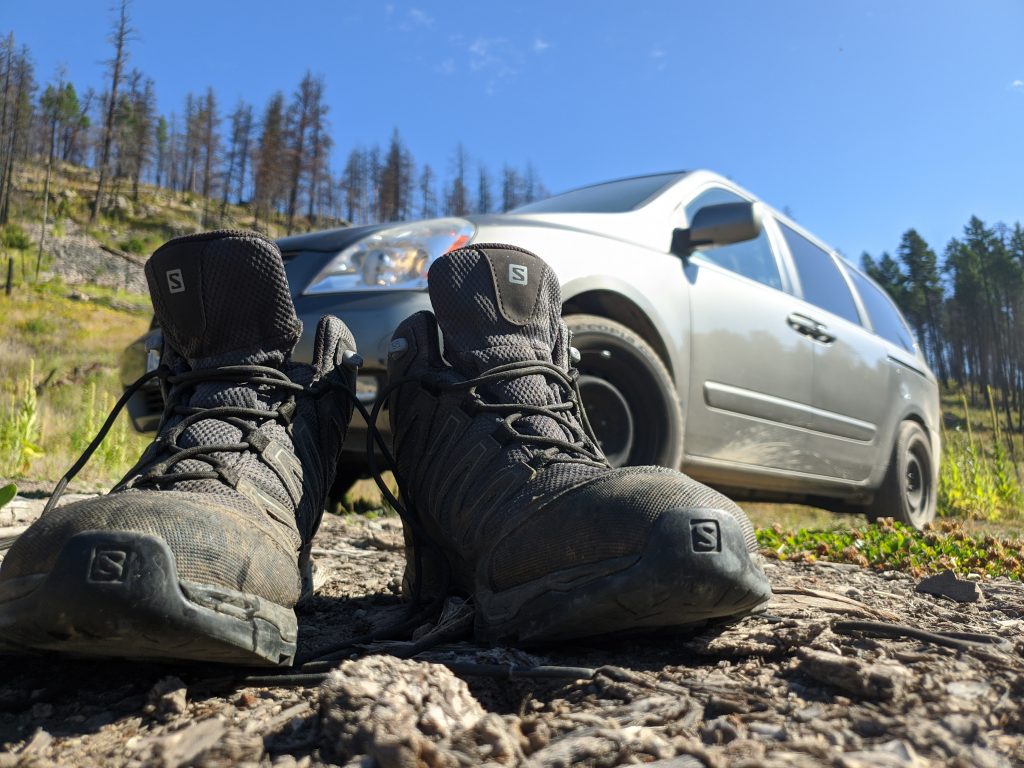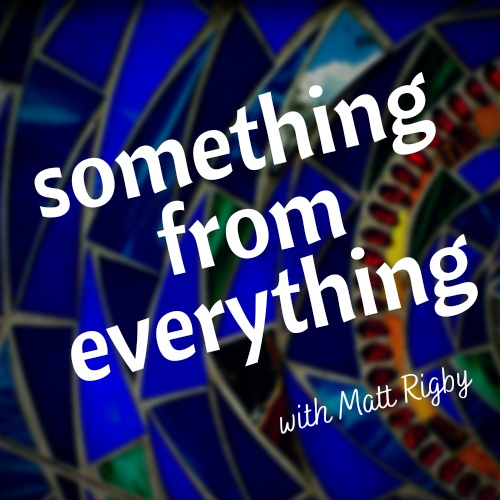
I love my mini van.
I mean, not really. Who loves a mini van? It’s a stock silver-grey, has a cracked front bumper, and I’m currently nursing a check engine light that just appeared. It’s similarly ‘maintained’ inside. Dog hair covers each and every grey surface (you can have any interior colour you want, as long as it’s grey), and half read books, usb cords, and rocks and sticks that my kids deemed too interesting to throw away are jammed into the back pouch of each seat. In the front door caddies are coupons, sunscreen, bug spray, and (because Covid) facemasks and sanitizer.
It (of course) does all the boring stuff well: commuting groceries and passengers alike, transporting to and from work. But that’s not why I love it. I love it because it is the gateway to the new. The next adventure.
That desire to experience the new is always within us, isn’t it? To place our feet on unfamiliar ground. For some, the gateway to the new is their backpack and flight tickets. In our family of five, it has long been the road trip.
The van, as unassuming as it is, has been places. Our youngest, now age six, has never been on an airplane. But he has spent endless hours looking out the rear passenger window. In the last two years alone, the van has driven to Northwestern British Columbia and been ferried across eight hours of open sea to the island of Haida Gwaii. It has been driven days on end along the entirety of the Oregon Coast, through the interior of California, and even to the canyons or Arizona and Utah.
You should, by all means, never buy this van if we decide to sell it. It has not been used gently. But it has been used. And in the search of the (affordable) new and novel, it has taken us on many a far flung adventure and magnificent trip.
This year, of course, there are no such magnificent trips planned. The United States is right out for the foreseeable future, as are escapades into neighbouring or nearby provinces and territories. Far flung remote communities on the island or Northern British Columbia beckon to our imaginations, but those invitations are tempered with the pleas of local residents asking tourists to stay away.
That leaves a lot of day trips in the interior of my province of British Columbia. On many a weekend the van is loaded early, and driven for hours to the next adventure, only to return before dark. All these day trips re-inforce what I already know: that I live in a breathtaking landscape, an area where others’ come to vacation.
But they also re-inforce another thing: that in my search for the new and novel, things have begun to feel awfully familiar. As amazing as our backyard is, it is still our backyard. I’m guessing that you can relate.
The endless search for the new is exciting, but it can also feel insatiable. Even before Covid restrictions and considerations, our resources have always been limited. The new feels increasingly scarce.
Maybe we need to think about ‘new’ differently.
A few years ago I began walking along a certain section of river side trail near my house. The section is accessible from only one side, running a number of kilometers before abruptly coming to a dead end at a riverbed. I have walked for hours along that trail, lost in podcasts, audiobooks, conversations with family and friends, and occasionally, even walking the path in silence.
For the longest time, it was the same, familiar trail. But eventually, great and obvious seasonal changes could be seen and felt. Dead and disintegrating leaves crushed into the mud in late fall. The hoarfrost reflecting the sunlight in early winter. The endless swath of green as leaves emerge in spring. The fluff of poplar seeds and pollen drifting lazily through the air in early summer.
Eventually your awareness increases. You begin to notice the smaller and subtle changes, as well as the seasonal ones. How erosion exposes a new root of a familiar tree. How a nest of ants is particularly busy in a dead stump. A gale of wind on a particular day, the strange stillness of another. You begin to notice what you bring to each walk, as well. The difference between a purposeful stride and a meandering one. The tone and context of the dialogue inside your head.
This section of trail has become one of my favorite places on earth. A place I have seen hundreds of times, and is never the same.
Because really, nothing is.
When we think of the ‘new’ we are most often referring to the novel: the place we have never been, the sight never beheld, the unfamiliar. But there is more than one type of new. It can also refer to the unveiling of things previously hidden, the dawning awareness of that which we’ve chronically overlooked.
It’s natural that we would long for the novel. Fantasize over flights we cannot board. Plot out future excursions to territories and countries who can not welcome us currently. Even yearn for van trips reaching new and unfamiliar communities in our home province. But with our eyes fixed on the distant horizon, we risk overlooking so much that is new in the here and now. Especially when it feels frustratingly familiar.
In the poem “Everything Is Waiting For You”, David Whyte reminds us that “alertness is the hidden discipline of familiarity”. Everything is new. Always. But it requires discipline to see it. We will regularly overlook it and miss it entirely, especially in the places and people we are most familiar with.
These days, it’s hard to imagine a more timely piece of advice than to “stay alert”. So much feels paradoxically both unknown and repetative. Unprecedented threats coupled with the mundane. The days, weeks and months threaten to blur into each other. We wrestle with the restlessness of staying close to home with a smaller, constrained group of family and friends. As we long for the novel, we need to develop the alertness to see what is hidden in plain sight:
That all things are new, and ever unfolding in front of us.
May we have the alertness to see it.

